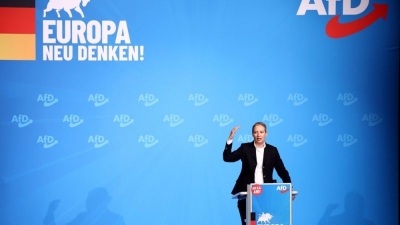Consumer groups file data privacy complaints against Facebook, Instagram ‘pay-or-consent’ model

Eight organisations from the network of the European Consumer Organisation BEUC filed complaints on Thursday (29 February) to their national data protection authorities against Facebook and Instagram’s ‘pay-or-consent’ model.
These complaints are the latest in a series of challenges based on consumer law or data privacy against Facebook and Instragram’s parent company Meta. The organisations contest Meta’s new ‘pay-or-consent’ model, introduced in November 2023 in the European Union.
“Meta has tried time and time again to justify the massive commercial surveillance it places its users under. Its unfair ‘pay-or-consent’ choice is the company’s latest effort to legalise its business model,” said Ursula Pachl, deputy director general of BEUC.
Euractiv will reach out to Meta and update the story accordingly.
‘Pay-or-consent’ model
Meta’s ‘pay-or-consent’ business model refers to Facebook and Instagram customers’ choice to either continue to use the services at no cost, providing they consent that their private data is processed by Meta, or opt for a paid subscription model, in which case Meta will refrain from processing it.
The subscriptions amount to €9.99/month on the web and €12.99/month on iOS and Android.
Content of the complaint
The eight associations each filed a complaint in a different country where the EU’s landmark regulation on data privacy (GDPR) applies.
The eight national data privacy authorities receiving the complaints will then have to refer the complaints to the Irish data privacy authority DPC. Under GDPR, it is the only organisation that can enforce this EU law, as Meta’s EU headquarter is based in Dublin.
The consumer rights organisations’ move tries to put pressure on the European Data Protection Board, composed of all the 27 national data privacy authorities, which has a role of supporter and advisor of the decisions taken by the Irish DPC on the GDPR.
BEUC members argue in their complaints that Facebook and Instagram’s ‘pay-or-consent’ model does not follow the GDPR principles of fair processing, data minimisation, and purpose limitation.
Consumer rights organisations consider that the data processed by Meta to bring contextual adds to its users is invasive. They specifically point towards Meta’s alleged massive data gathering of its users’ behaviour, emotions, political views, sexual orientation, places of worship, financial stability, or susceptibility to addictions.
In this sense, consumer rights organisations consider that the gathering of extensive data of millions of EU citizens profiles consumers for multiple purposes and therefore goes beyond what is necessary for targeted advertisements.
It also considers that Meta’s data processing is unfair as it uses its dominant position to force its users to accept its privacy policy, without bringing enough detailed explanation.
Eventually, they consider that Meta’s data processing lacks transparency, as users do not know the full extent of the processing happening with their personal data.

Consumer groups file complaint against Meta’s ‘pay-or-consent’ model
The European Consumer Organisation (BEUC) and 18 of its members filed a complaint to the European Commission on Thursday (30 November) against Meta’s “unfair pay-or-consent” model under EU consumer law.
Legal basis dispute
In addition, consumer rights organisations are challenging Meta’s legal basis for processing data of its EU users.
The Irish data privacy authority in 2022 and the Court of Justice of the EU in 2023 both concluded that two legal bases that Meta tried to use in order to justify its data processing were unlawful.
Under the GDPR, Meta can now only establish the legal basis of its data processing on consent, hence November 2023 ‘pay-or-consent’ model.
Yet, for BEUC’s members, this legal basis is invalid.
The given reason is that consent is not freely given – a GDPR requirement for consent validity – because Meta’s choice screen of its ‘pay-or-consent’ model coerces consumers into accepting the processing of their personal data.
Additionally, they argue that Meta does not provide sufficient explanations supporting why the price set by the US company is necessary, which is contrary to the requirements set by the Court of Justice.
‘Pay-or-consent’ challenges
BEUC itself and 18 of its organisations previously filed a complaint to the European Commission against Meta’s ‘pay-or-consent’ model in November 2023, based on the EU’s consumer law.
The European center for digital rights (Nyob) already filed two complaints against Meta’s model with the Austrian data protection authority, considering Meta’s legal basis for data processing as unlawful and saying that the way Meta implemented consent withdrawal infringed GDPR.
In December, Euractiv revealed that the European Commission’s consumer protection department was seeking to establish a privacy-friendly option to the pay-or-okay model.

Digital rights group files additional complaint against Meta’s ‘pay or okay’ model
The non-profit digital rights organisation Noyb filed an additional complaint on Thursday morning (11 January) with the Austrian data protection authority about Facebook’s “pay or okay” system, this time focusing on the withdrawal conditions.
Read more with Euractiv




